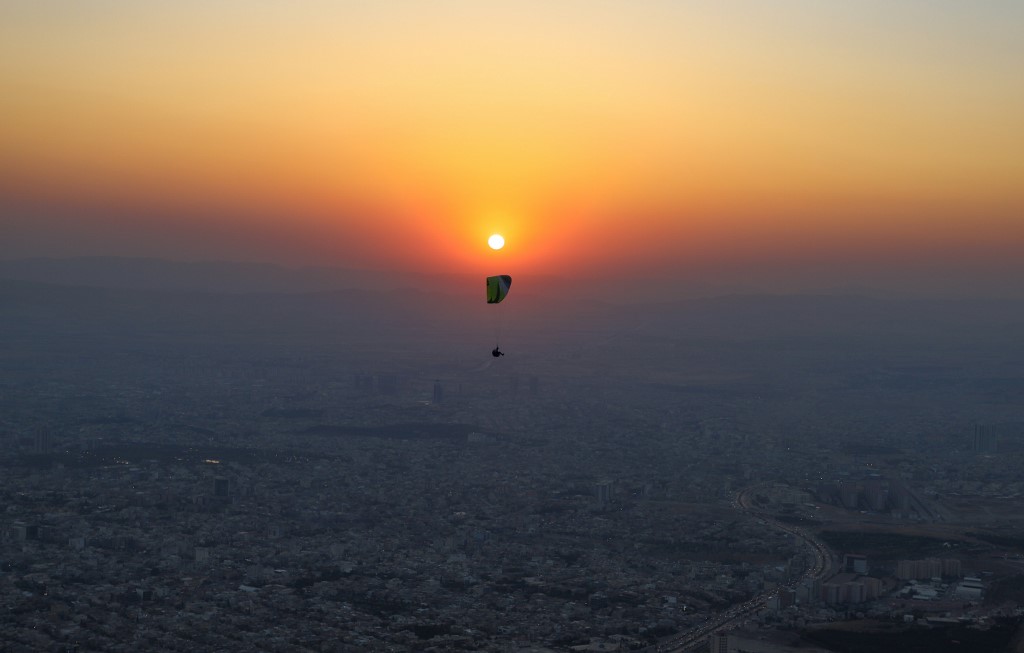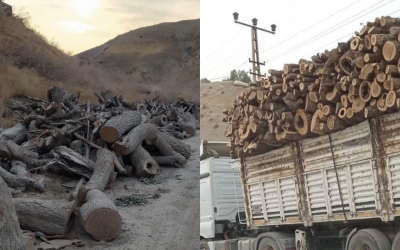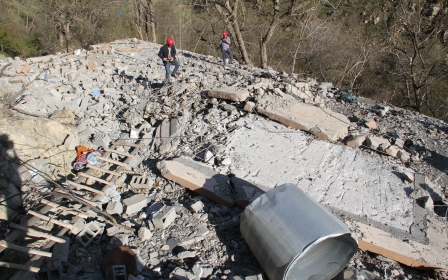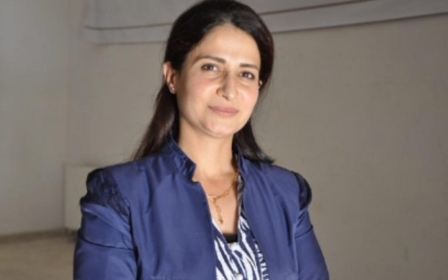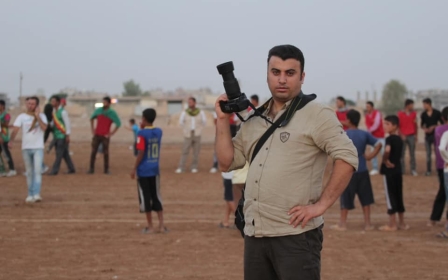Iraqi Kurdish cancer patients in limbo as budget cuts bite
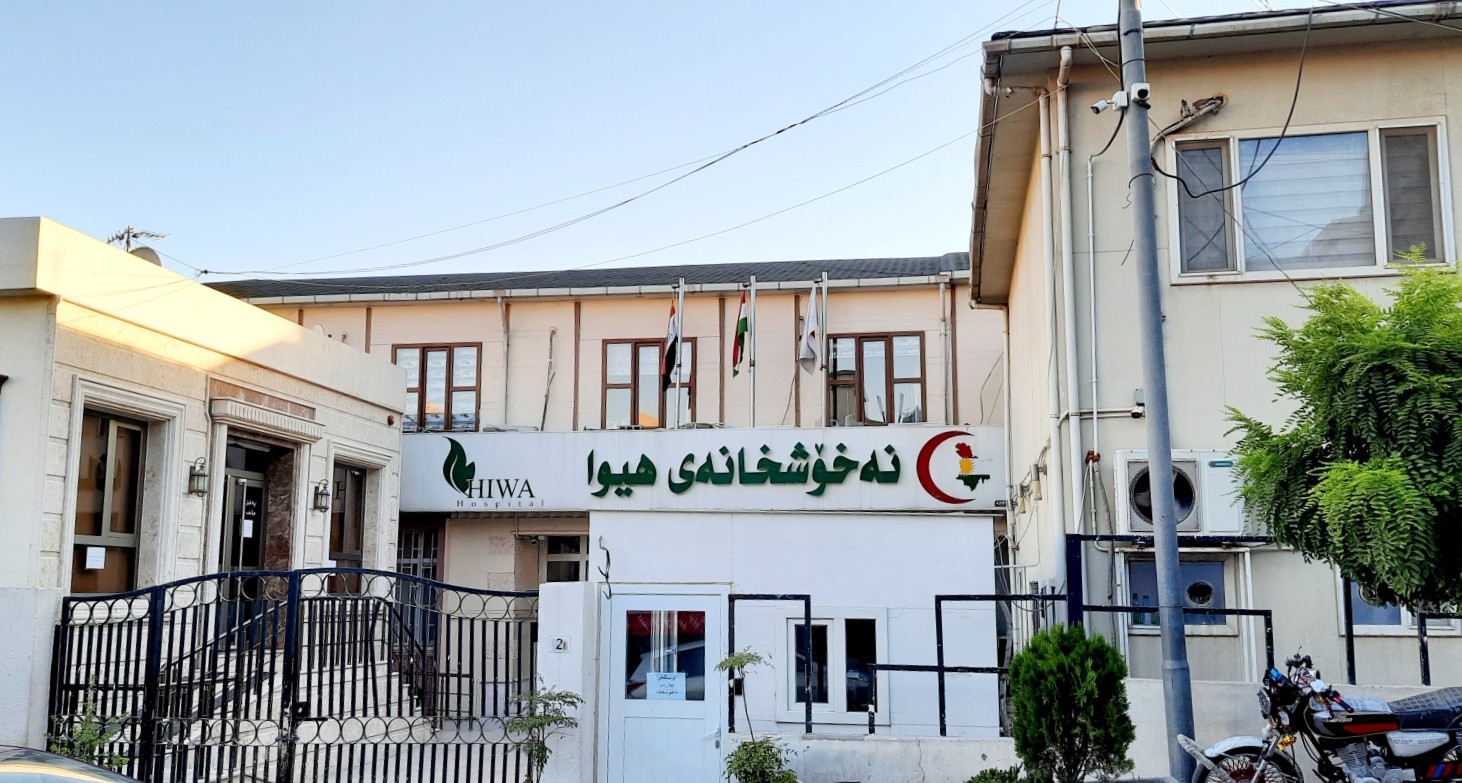
Soon after Sulaymaniyah's Hiwa Hospital opened in 2007, it gained a reputation as the best place for cancer treatment in all of Iraq’s autonomous Kurdistan region. Those days now seem far away.
Mired in a budget row with the federal government in Baghdad, the Kurdistan Regional Government (KRG) has reduced funding for purchasing medicines and delayed paying salaries to healthcare workers at Hilwa Hospital.
This is being felt by some of the most vulnerable people in the region: cancer patients.
Tayar Tofiq, a 45-year-old rectal cancer patient from Sulaymaniyah, was due for treatment earlier this month when the funding crisis hit. He needs to receive an injection of drugs every 21 days, but has suddenly found his treatment interrupted.
On 14 June, medics at the hospital went on strike for several days, protesting over six months of unpaid wages and double shifts.
New MEE newsletter: Jerusalem Dispatch
Sign up to get the latest insights and analysis on Israel-Palestine, alongside Turkey Unpacked and other MEE newsletters
"While Hiwa Hospital employees were on strike, I could neither take the necessary injection at hospital nor purchase the drugs in private pharmacies. I was obliged to go to Erbil, where I bought the injection for 575,000 dinars [nearly $388]," Tofiq told MEE.
'My largest concern is that they privatise Hiwa Hospital, and then I would not be able to afford to buy my medications'
- Tayar Tofiq, cancer patient
“We purchased another injection for my sister, who also has cancer, for 1.7m dinars. Currently Hiwa Hospital has shortages in cancer medicines."
Tofiq is not alone. According to the KRG, 6,293 new cancer patients were identified last year, down from the year before due to Covid restrictions stopping Iraqis from outside Kurdistan travelling to the region for treatment. In fact, studies have shown rising cancer rates in Iraqi Kurdistan in recent years.
With thousands of people affected by the cancer treatment crisis, Iraqi Kurds have flooded social media with posts raising the alarm.
Kurdish social media users and activists on Facebook have put the Hiwa Hospital logo on their profile photos. Activists have also launched fundraising campaigns in a bid to save the lives of cancer patients and pressure Kurdish authorities into dealing with the hospital's issues.
There is widespread fear that the hospital will be privatised and that the cost of treatment will shoot up as a result. Currently, treatment at the hospital is free, but there is a shortage of cancer medications.
"My largest concern is that they privatise Hiwa Hospital, and then I would not be able to afford to buy my medications," Tofiq said.
MEE asked the director of Hiwa Hospital, Yad Naqshbandi, for comment, but he was not available.
There are four main public cancer hospitals in the Kurdistan region: the Nanakali and Rizgari hospitals in Erbil, Hiwa Hospital in Sulaymaniyah and Azadi Hospital in Duhok.
These hospitals offer free diagnosis and treatment for cancer patients, including many from other parts of Iraq.
Money on its way but wages still delayed
Assistance may be on the way.
Under public pressure, KRG Prime Minister Masrour Barzani has decided to allocate just over $1m for cancer treatment.
But a doctor at Hiwa Hospital, who preferred to remain anonymous, told MEE that medics had yet to receive their wages. Meanwhile, they are working overtime, as the region lacks cancer specialists and other medics. The KRG has promised to pay for the overtime.
"We haven't been paid by the KRG health ministry for overtime at Hiwa Hospital for more than six months. So far, the KRG's promises are just ink on paper," the doctor told MEE.
"Hiwa Hospital now is running short of cancer medications and specialist doctors. The hospital, as well as all the other governmental health facilities, are at the risk of finally being privatised."
Aso Hawezi, a doctor and the official spokesperson of the KRG Ministry of Health, assured MEE that a funding structure has been created and will be implemented soon.
"The issue of Hiwa Hospital is nearly going to be resolved as the KRG PM has decided to allocate regularly payments per month," Hawezi said.
Hawezi said the apparent rising cancer rates were linked to environmental pollution, the result of poor-quality fuel and industrial waste. He said he expects a further increase in rates this year, adding that the KRG is seriously working on reversing the trend.
In April, the parliamentary health committee said cancer rates are increasing annually, rising by an alarming 524 new cases a month on average.
Roots of the issue
However, Kazim Faruq, head of the New Generation opposition group in the region's parliament, said the two ruling parties, the Kurdistan Democratic Party (KDP) and the Patriotic Union of Kurdistan (PUK), are "gradually privatising" the public health sector, as they have done with other parts of the public sector, such as education and electricity.
"The ruling parties have built several private sector hospitals in Erbil, Sulaymaniyah and Duhok, and they are indirectly trying to weaken the public hospitals in order to make people go to the private hospitals," Faruq, who is also a physician and member of the parliament's health committee, told MEE.
Hawezi denied the accusation: "Privatising the region's hospitals is only untrue propaganda. We as the health ministry pay special attention to these cancer hospitals."
By law, funding for cancer treatment is raised through taking five percent of taxes on cigarette and alcohol imports. Traffic fines also contribute. However, Faruq alleged that the government in 2019 illegally used cancer funds of nearly $75m for other purposes.
Ali Hama Salih, a Kurdish lawmaker from the Movement for Change parliamentary bloc, told MEE: "Currently assistance funds for cancer patients has decreased, as companies linked to the two main ruling parties, the KDP and PUK, are smuggling cigarettes and beverages into the Kurdistan region, and thus they escape from paying taxes to the KRG."
Hawezi said any smuggling must be stamped out to secure funding for cancer treatment.
"What is important is that funding for the cancer patients continues either from taxes or other revenue sources. The issue of smuggling at the region's border gates - if it exists - should be a question for the relevant authorities," he said.
Middle East Eye delivers independent and unrivalled coverage and analysis of the Middle East, North Africa and beyond. To learn more about republishing this content and the associated fees, please fill out this form. More about MEE can be found here.


